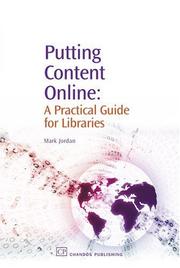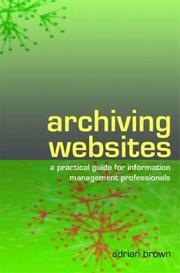| Listing 1 - 10 of 185 | << page >> |
Sort by
|
Book
ISBN: 9789004547261 9789004547223 9004547266 Year: 2023 Publisher: Leiden, The Netherlands : Brill,
Abstract | Keywords | Export | Availability | Bookmark
 Loading...
Loading...Choose an application
- Reference Manager
- EndNote
- RefWorks (Direct export to RefWorks)
This book uses case analyses and industry insights and blends them with forays into philosophy and ethics to conceptualise the mismatch between human values and the values inherent in an increasingly technologized world. Bringing together contributors from the disciplines of law, politics, philosophy, and communication studies, this volume develops an interdisciplinary vocabulary for thinking about the questions and antinomies of human-technology interaction while also resisting any deceptively straightforward synthesis. The topics discussed include the competition over and regulation of technology, the harm induced by autonomous technologies, and the place and role of humans in a world that is undergoing rapid and radical change.
Year: 2012 Publisher: [Washington, D.C.] : [Washington, D.C.] : Federal Depository Library Program, Library Services and Content Management, U.S. Government Printing Office, Federal Depository Library Program, Library Services and Content Management, U.S. Government Publishing Office,
Abstract | Keywords | Export | Availability | Bookmark
 Loading...
Loading...Choose an application
- Reference Manager
- EndNote
- RefWorks (Direct export to RefWorks)
This archive preserves and makes permanently accessible exclusively digital government information presented in official U.S. Federal agency Web sites. Iterations of sites are captured periodically to reflect Federal government sites' evolution, and to enable users to access publications and information that are no longer accessible from the sites' current versions.
Web archives --- Administrative agencies --- Electronic government information --- United States.
Book
ISBN: 9780773556966 9780773556973 9780773558212 9780773558229 0773558225 0773558217 0773556974 0773556966 Year: 2019 Publisher: Montreal Kingston London Chicago
Abstract | Keywords | Export | Availability | Bookmark
 Loading...
Loading...Choose an application
- Reference Manager
- EndNote
- RefWorks (Direct export to RefWorks)
Believe it or not, the 1990s are history. As historians turn to study this period and beyond, they will encounter a historical record that is radically different from what has ever existed before. Old websites, social media, blogs, photographs, and videos are all part of the massive quantities of digital information that technologists, librarians, archivists, and organizations such as the Internet Archive have been collecting for the past three decades. In History in the Age of Abundance? Ian Milligan argues that web-based historical sources and their archives present extraordinary opportunities as well as daunting technical and ethical challenges for historians. Through case studies, he outlines the approaches, methods, tools, and search functions that can help a historian turn web documents into historical sources. He also considers the implications of the size and scale of digital sources, which amount to more information than historians have ever had at their fingertips, and many of which are by and about people who have traditionally been absent from the historical record. Scrutinizing the concept of the web and the mechanics of its archives, Milligan explains how these new media challenge, reshape, and enrich both the historical profession and the historical record. A wake-up call for historians of the twenty-first century, History in the Age of Abundance? is an essential introduction to the way web archives work, what possibilities they open up, what risks they entail, and what the shift to digital information means for historians, their professional training and organization, and society as a whole.
Computer. Automation --- History as a science --- Web archives --- History --- Research --- Internet archives --- Web site archives --- Web sites archives --- World Wide Web archives --- Archives --- Digital libraries --- Research.
Book
ISBN: 3030632911 3030632903 9783030632915 Year: 2021 Publisher: Cham Springer International Publishing :Imprint: Springer
Abstract | Keywords | Export | Availability | Bookmark
 Loading...
Loading...Choose an application
- Reference Manager
- EndNote
- RefWorks (Direct export to RefWorks)
"This book provides practical information about web archives, offers inspiring examples for web archivists, raises new challenges, and shares recent research results about access methods to explore information from the past preserved by web archives"--Author's website.
Web archiving. --- Internet archiving --- Digital preservation --- Web archives. --- Internet archives --- Web site archives --- Web sites archives --- World Wide Web archives --- Archives --- Digital libraries

ISBN: 9781780630984 1780630980 9781843341772 1843341778 184334176X 9781843341765 Year: 2006 Publisher: Oxford Chardos
Abstract | Keywords | Export | Availability | Bookmark
 Loading...
Loading...Choose an application
- Reference Manager
- EndNote
- RefWorks (Direct export to RefWorks)
This book focuses on practical, standards-based approaches to planning, executing and managing projects in which libraries and other cultural institutions digitize material and make it available on the web (or make collections of born-digital material available). Topics include evaluating material for digitization, intellectual property issues, metadata standards, digital library content management systems, search and retrieval considerations, project management, project operations, proposal writing, and libraries' emerging role as publishers.Highly practical. Explains complex
Digital libraries. --- Web archives. --- Library materials --- Archival materials --- Digitization. --- Bibliothèques virtuelles --- Archives Internet
Year: 2007 Publisher: [Washington, D.C.] : [Library of Congress]
Abstract | Keywords | Export | Availability | Bookmark
 Loading...
Loading...Choose an application
- Reference Manager
- EndNote
- RefWorks (Direct export to RefWorks)
Library materials --- Digital preservation. --- Metadata. --- Web archives --- Digitization. --- United States --- History
Periodical
Year: 2008 Publisher: [Washington, D.C.] : Library of Congress,
Abstract | Keywords | Export | Availability | Bookmark
 Loading...
Loading...Choose an application
- Reference Manager
- EndNote
- RefWorks (Direct export to RefWorks)
Book
ISBN: 9781911307563 1911307568 9781911307587 1911307584 9781911307570 1911307576 9781911307594 1911307592 1911307428 9781911307426 191130755X 9781911307556 Year: 2017 Publisher: UCL Press
Abstract | Keywords | Export | Availability | Bookmark
 Loading...
Loading...Choose an application
- Reference Manager
- EndNote
- RefWorks (Direct export to RefWorks)
The World Wide Web has now been in use for more than 20 years. From early browsers to today's principal source of information, entertainment and much else, the Web is an integral part of our daily lives, to the extent that some people believe 'if it's not online, it doesn't exist.' While this statement is not entirely true, it is becoming increasingly accurate, and reflects the Web's role as an indispensable treasure trove. It is curious, therefore, that historians and social scientists have thus far made little use of the Web to investigate historical patterns of culture and society, despite.
Web archiving. --- Web archives. --- History --- Archivage Internet. --- Archives Internet. --- Histoire --- Methodology. --- Méthodologie. --- Historiography --- Internet archiving --- Digital preservation --- Internet archives --- Web site archives --- Web sites archives --- World Wide Web archives --- Archives --- Digital libraries
Book
ISBN: 9791036504709 9791036503689 9791036503672 Year: 2019 Publisher: Marseille OpenEdition Press
Abstract | Keywords | Export | Availability | Bookmark
 Loading...
Loading...Choose an application
- Reference Manager
- EndNote
- RefWorks (Direct export to RefWorks)
La spécificité de l'archivage du Web et de ces archives, l’importance qu’elles devraient prendre à l’avenir pour la recherche, mais aussi les particularités et la diversité de leurs conditions de collecte, préservation, accessibilité et consultation invitent à proposer un ouvrage sur cet enjeu à l’interface des préoccupations du monde des bibliothèques, des archives, des entreprises et des chercheurs.
Web archives. --- Digital libraries. --- Digital curation --- Digital media collections --- Digital media libraries --- Digital repositories --- Electronic libraries --- Electronic publication collections --- Electronic publication libraries --- Electronic text collections --- Repositories, Digital --- Virtual libraries --- Libraries --- Information storage and retrieval systems --- Web archives --- Internet archives --- Web site archives --- Web sites archives --- World Wide Web archives --- Archives --- Digital libraries

ISBN: 1856045536 9781856045537 9781856049009 1299201628 1856049000 9781299201620 Year: 2006 Publisher: London Facet
Abstract | Keywords | Export | Availability | Bookmark
 Loading...
Loading...Choose an application
- Reference Manager
- EndNote
- RefWorks (Direct export to RefWorks)
The world wide web is arguably the most important, and certainly the largest and most ubiquitous, cultural and commercial information resource in existence. The requirements to actively preserve selected parts of it, and the attendant problems of archiving such a vast and ephemeral entity, are only now beginning to be fully appreciated. This important book is the first to offer practical guidance to information-management professionals seeking to implement web archiving programmes of their own. It is essential reading for those who need to collect and preserve specific elements of the web - from national domains or individual subject areas to an organization's own website. Drawing on the author's experience of managing The National Archives' web-archiving programme, together with lessons learned from other international initiatives, this book provides a comprehensive overview of current best practice, together with practical guidance for anyone seeking to establish a web-archiving programme. It assumes only a basic understanding of IT and web technologies, although it also offers much for more technically oriented readers. Contents include: the development of web archiving; selection; collection methods; quality assurance and cataloguing; preservation; delivery to users; legal issues; managing a web-archiving programme; and; future trends. Written to address audiences from the whole spectrum of information-management sectors, this book is essential reading for three types of reader: policy-makers, who need to make decisions about establishing or developing an institutional web archiving programme; information-management professionals, who may be required to implement a web-archiving programme; and website owners and webmasters, who may be required to facilitate archiving of their own websites.
Computer architecture. Operating systems --- Libraries --- Web archives. --- Bibliothèques --- Archives Internet --- Special collections --- Computer network resources. --- Fonds spéciaux --- Information électronique --- 930.25:681.3 --- -Web archives --- 025.17 --- Internet archives --- Web site archives --- Web sites archives --- World Wide Web archives --- Archives --- Digital libraries --- Documentation --- Public institutions --- Librarians --- Archiefwetenschap. Archivistiek-:-Computerwetenschap --- -Computer network resources --- 930.25:681.3 Archiefwetenschap. Archivistiek-:-Computerwetenschap --- Bibliothèques --- Fonds spéciaux --- Information électronique --- Web archiving --- Internet archiving --- Digital preservation --- Special collections&delete& --- Web sites --- Web archiving. --- Web sites.
| Listing 1 - 10 of 185 | << page >> |
Sort by
|

 Search
Search Feedback
Feedback About UniCat
About UniCat  Help
Help News
News